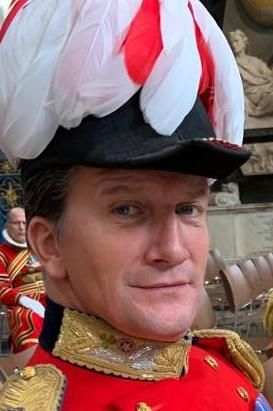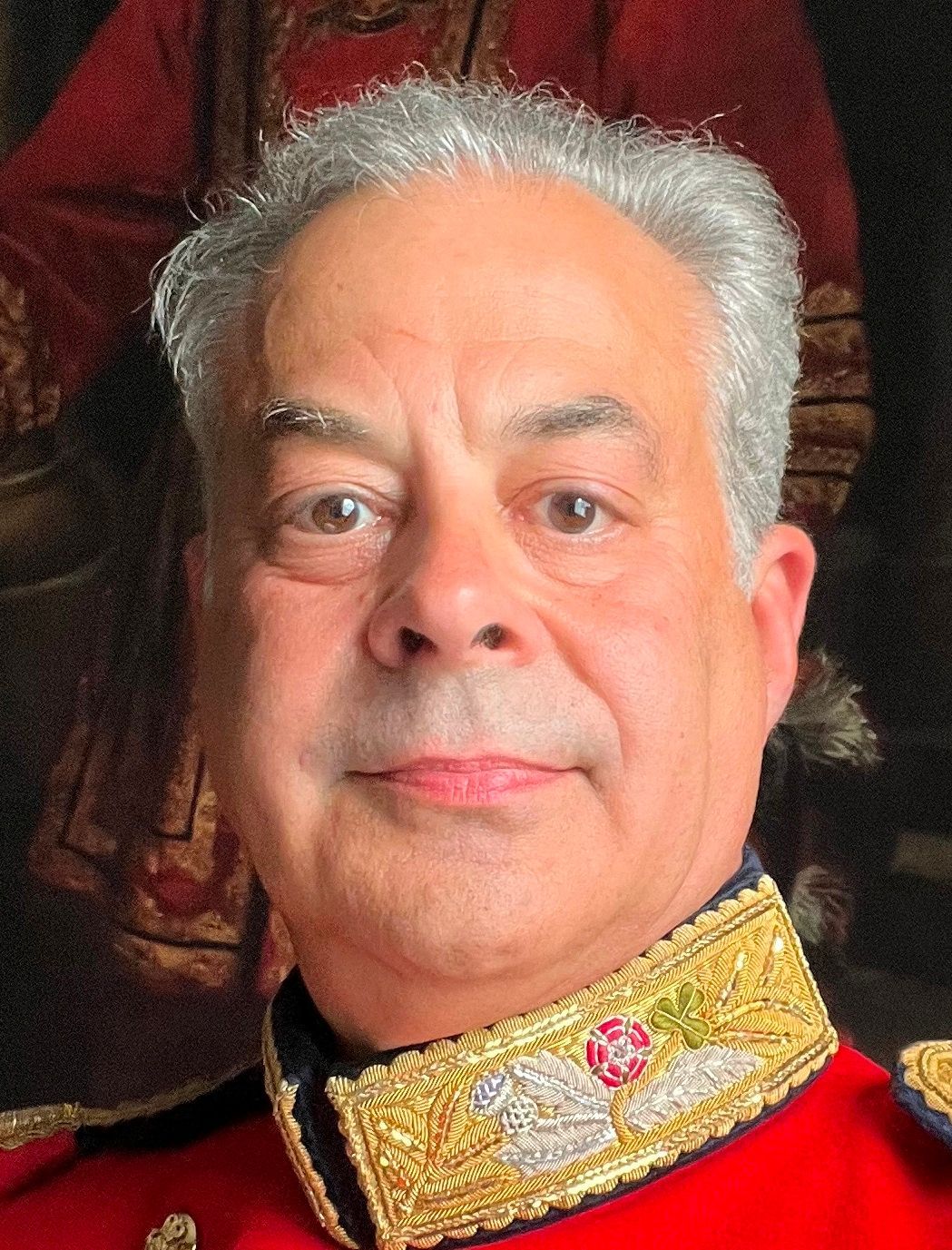Major Simon JN Treadgold - Welsh Guards
Appointed Exon 2013

Major Simon JN Treadgold - Welsh Guards
Appointed Exon 2013

Major Richard Williams-Bulkeley – Welsh Guards
Appointed Exon 2023

Roger Monk Esq, Exon 1805-1831 (left)
The rank of Exon is the most junior. The first mention of Exon is in the ceremony of All Nights, which is fully described in the chapter relating to Charles II. They were added to the staff of officers in 1668 just about the time when Marsham’s account of All Night was written. The derivation and meaning of the word Exon has been and is a puzzle to many, but it is undoubtedly the French pronunciation of the word exempt. An exempt was an officer in the old French Garde Du Corps. “Exempts des Guedes du Corps” are described in a military dictionary as “Exons belonging to the Body Guards,” There was in France an officer of police called “Un Exempt (exon) de Police.” When Charles II formed his Horse Guards he created a commissioned officer who was styled indiscriminately the Exempt or the Exon, and in each of the two troops this officer ranked with the Captain.
There is further confusion connected with the title of Exon, for in his commission he is styled corporal. But it appears that in Elizabeth’s reign “corporal” was a commissioned officer, and the term was synonymous with Captain. Down to the time of the Coronation of George III, which took place on 22 September 1761, Corporal was only another word for Exon, as may be seen on referring to the official programme of the Coronation, wherein mention is made of “the Corporals or Exons of the Yeomen of the Guard.” The Exempt in the French Garde du corps always had charge of the Night Watch, and the Exon is the English Body Guard was especially appointed for that service. Curiously enough the word Exempt is also used in the orders of the Yeomen of the Guard with its English meaning.
In 1711 the term "Exon" is used in Royal Warrant and both Corporal and Exon in the same Warrant.
Copyright © 2026
The King's Body Guard of the Yeomen of the Guard
The Guardroom